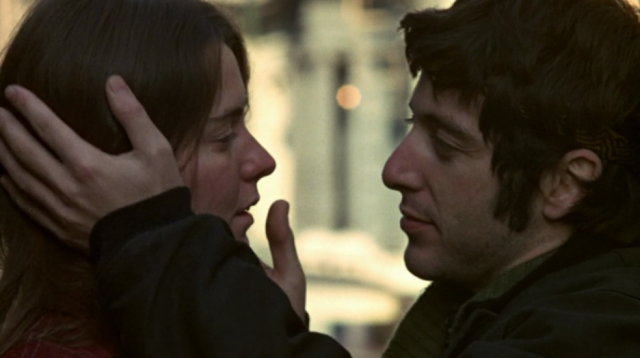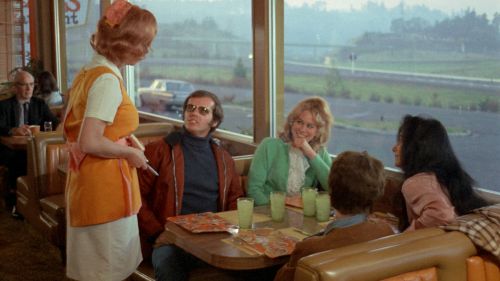DOG DAY AFTERNOON (Sidney Lumet, 1975) and SERPICO (Sidney Lumet, 1973)
Anthology Film Archives
32 Second Ave. at Second St.
Serpico: Sunday, December 2, 3:45; Saturday, December 8, 9:00, Monday, December 10, 6:30
Dog Day Afternoon: Monday, December 3, 9:00; Thursday, December 6, 6:45; Saturday, December 8, 4:00
Series runs through December 10
212-505-5181
anthologyfilmarchives.org
 Anthology Film Archives’ “From the Pen of . . .” series, honoring some of the great cinema scribes and source writers, continues with a pair of tense, powerful fact-based dramas directed by Sidney Lumet and starring Bronx native Al Pacino that helped define the 1970s, both onscreen and off. In Dog Day Afternoon, one of the most bizarre bank robberies gone wrong you’ll ever see, Pacino stars as Sonny, a confused young man desperate to get money to pay for his boyfriend’s (Chris Sarandon) sex-change operation. But things don’t go quite as planned, and soon Sonny is leading the gathered crowd in chants of “Attica! Attica!” while his partner, Sal (John Cazale), wants a plane to take them to Wyoming and Det. Moretti (Charles Durning) is trying to get them to surrender without hurting anyone, primarily themselves. Written by Frank Pierson — who won an Oscar for Best Original Screenplay — Dog Day Afternoon is a blistering, funny, biting commentary on mid-’70s New York as well as a fascinating character study of a deeply conflicted man. In Serpico, another gritty, realistic drama, Pacino gives an unforgettable performance as an undercover cop single-handedly trying to end the rampant corruption that has spread like a disease throughout the NYPD. When his fellow officers and supposed friends turn their back on him, he is left on his own, vulnerable but still committed, risking both his career and his life to do what he thinks is right. Based on Peter Maas’s book, Serpico earned a Best Adapted Screenplay Oscar nomination for Waldo Salt and Norman Wexler. Pacino is explosive in both films, playing two very different protagonists on different sides of the law yet similar in so many ways. The series runs through December 10 with such other films as Midnight Cowboy, Cat Ballou, French Connection II, and The Seven-Ups.
Anthology Film Archives’ “From the Pen of . . .” series, honoring some of the great cinema scribes and source writers, continues with a pair of tense, powerful fact-based dramas directed by Sidney Lumet and starring Bronx native Al Pacino that helped define the 1970s, both onscreen and off. In Dog Day Afternoon, one of the most bizarre bank robberies gone wrong you’ll ever see, Pacino stars as Sonny, a confused young man desperate to get money to pay for his boyfriend’s (Chris Sarandon) sex-change operation. But things don’t go quite as planned, and soon Sonny is leading the gathered crowd in chants of “Attica! Attica!” while his partner, Sal (John Cazale), wants a plane to take them to Wyoming and Det. Moretti (Charles Durning) is trying to get them to surrender without hurting anyone, primarily themselves. Written by Frank Pierson — who won an Oscar for Best Original Screenplay — Dog Day Afternoon is a blistering, funny, biting commentary on mid-’70s New York as well as a fascinating character study of a deeply conflicted man. In Serpico, another gritty, realistic drama, Pacino gives an unforgettable performance as an undercover cop single-handedly trying to end the rampant corruption that has spread like a disease throughout the NYPD. When his fellow officers and supposed friends turn their back on him, he is left on his own, vulnerable but still committed, risking both his career and his life to do what he thinks is right. Based on Peter Maas’s book, Serpico earned a Best Adapted Screenplay Oscar nomination for Waldo Salt and Norman Wexler. Pacino is explosive in both films, playing two very different protagonists on different sides of the law yet similar in so many ways. The series runs through December 10 with such other films as Midnight Cowboy, Cat Ballou, French Connection II, and The Seven-Ups.
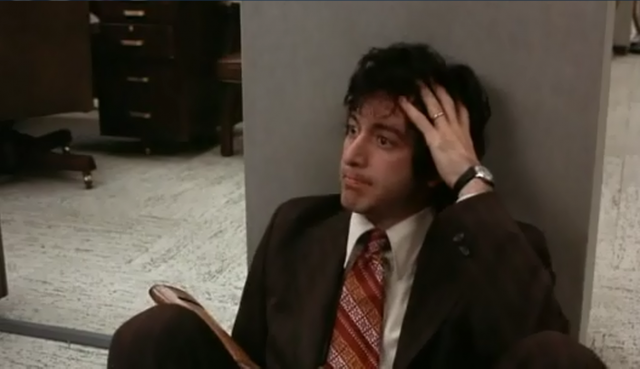
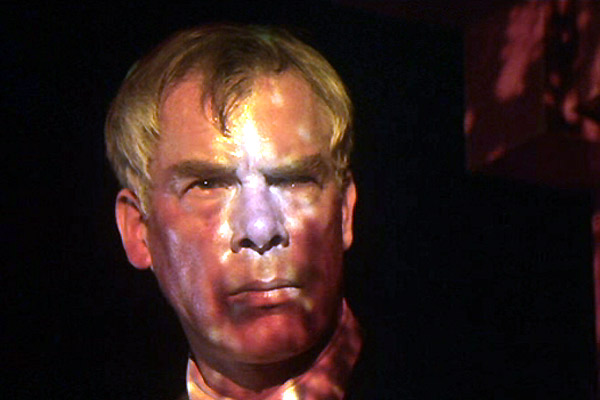
 John Boorman’s Point Blank is an oxymoronic psychedelic film noir, a violent psychological thriller about a determined man dead set on vengeance. Lee Marvin — on quite a hot streak following Cat Ballou, Ship of Fools, The Professionals, and The Dirty Dozen — stars as the one-named Walker, a sincere, old-fashioned man who is double-crossed by his wife, Lynne (Sharon Acker), and friend, Mal Reese (John Vernon, in his film debut), when a deal goes bad on Alcatraz. Searching for Reese, Walker hooks up with Lynne’s sister, Chris (Angie Dickinson), a sexy femme fatale who owns a hot club in the Bay Area. As Walker makes his way up the criminal organization ladder in his quest to get the $93,000 he’s owed, he leaves behind a bloody trail that keeps getting messier and messier. Adapted by Alexander Jacobs and David and Rafe Newhouse from Donald Westlake’s first Parker novel, The Hunter, Boorman’s film is like the antihero Walker himself, purposefully out of time and place. Walker is essentially an anachronism as he makes his way through Point Blank, evoking John Wayne’s Ethan Edwards in John Ford’s classic Western The Searchers. The Summer of Love seems to have had no effect on Walker, who still primarily dresses in dull colors — until Chris brings out the color in him, particularly in one memorable scene in which they both are wearing bright yellow and spy on Reese’s hideaway through a yellow telescope. Film noir is by definition set in a black-and-white world, but Walker can’t hide from the old ways anymore, as he shows when groovy colored lights flash on him in Chris’s club.
John Boorman’s Point Blank is an oxymoronic psychedelic film noir, a violent psychological thriller about a determined man dead set on vengeance. Lee Marvin — on quite a hot streak following Cat Ballou, Ship of Fools, The Professionals, and The Dirty Dozen — stars as the one-named Walker, a sincere, old-fashioned man who is double-crossed by his wife, Lynne (Sharon Acker), and friend, Mal Reese (John Vernon, in his film debut), when a deal goes bad on Alcatraz. Searching for Reese, Walker hooks up with Lynne’s sister, Chris (Angie Dickinson), a sexy femme fatale who owns a hot club in the Bay Area. As Walker makes his way up the criminal organization ladder in his quest to get the $93,000 he’s owed, he leaves behind a bloody trail that keeps getting messier and messier. Adapted by Alexander Jacobs and David and Rafe Newhouse from Donald Westlake’s first Parker novel, The Hunter, Boorman’s film is like the antihero Walker himself, purposefully out of time and place. Walker is essentially an anachronism as he makes his way through Point Blank, evoking John Wayne’s Ethan Edwards in John Ford’s classic Western The Searchers. The Summer of Love seems to have had no effect on Walker, who still primarily dresses in dull colors — until Chris brings out the color in him, particularly in one memorable scene in which they both are wearing bright yellow and spy on Reese’s hideaway through a yellow telescope. Film noir is by definition set in a black-and-white world, but Walker can’t hide from the old ways anymore, as he shows when groovy colored lights flash on him in Chris’s club.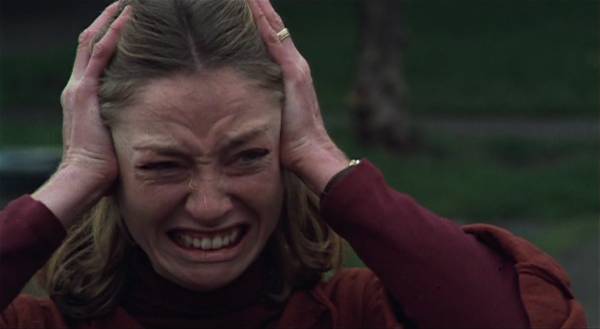
 Based on a magazine serial by Jack Finney, Don Siegel’s 1956 classic, Invasion of the Body Snatchers, was the ultimate thriller about cold war paranoia. Twenty-two years later, in a nation just beginning to come to grips with the failure of the Vietnam War, Philip Kaufman (The Right Stuff, Quills) remade the film, moving the location north to San Francisco from the original’s Los Angeles. When health inspector Matthew Bennell (Donald Sutherland) and lab scientist Elizabeth Driscoll (Brooke Adams) suspect that people, while they sleep, are being replaced by pod replicas, they have a hard time making anyone believe them, especially Dr. David Kibner (Leonary Nimoy), who takes the Freudian route instead. But when Jack and Nancy Bellicec (Jeff Goldblum and Veronica Cartwright) seem to come up with some physical proof, things begin to get far more serious — and much more dangerous. Kaufman’s film is one of the best remakes ever made, paying proper homage to the original while standing up on its own, with an unforgettable ending (as well as an unforgettable dog). It cleverly captures the building selfishness of the late 1970s, which would lead directly into the Reagan era. As an added treat, the film includes a whole bunch of cameos, including Siegel as a taxi driver, Robert Duvall as a priest, and Kevin McCarthy, who starred as Dr. Miles Bennell in the original, still on the run, trying desperately to make someone believe him. The sc-fi thriller, adapted by W. D. Richter (Daniel Mainwaring wrote the 1956 version), is screening as part of the fourth installment of Anthology Film Archives’ “From the Pen of . . .” series, which highlights the work of screenwriters and their original sources, whose work often gets overlooked if it doesn’t win an Oscar. The eleven-day festival also includes such films as John Boorman’s Point Blank, written by Alexander Jacobs based on a Donald Westlake novel; Philip D’Antoni’s The Seven-Ups, written by Jacobs and Albert Reuben, with French Connection and Cruising cop Randy Jurgensen on hand to talk about the movie at the December 1 screening; and John Schlesinger’s Midnight Cowboy, written by Waldo Salt based on the the novel by James Leo Herlihy.
Based on a magazine serial by Jack Finney, Don Siegel’s 1956 classic, Invasion of the Body Snatchers, was the ultimate thriller about cold war paranoia. Twenty-two years later, in a nation just beginning to come to grips with the failure of the Vietnam War, Philip Kaufman (The Right Stuff, Quills) remade the film, moving the location north to San Francisco from the original’s Los Angeles. When health inspector Matthew Bennell (Donald Sutherland) and lab scientist Elizabeth Driscoll (Brooke Adams) suspect that people, while they sleep, are being replaced by pod replicas, they have a hard time making anyone believe them, especially Dr. David Kibner (Leonary Nimoy), who takes the Freudian route instead. But when Jack and Nancy Bellicec (Jeff Goldblum and Veronica Cartwright) seem to come up with some physical proof, things begin to get far more serious — and much more dangerous. Kaufman’s film is one of the best remakes ever made, paying proper homage to the original while standing up on its own, with an unforgettable ending (as well as an unforgettable dog). It cleverly captures the building selfishness of the late 1970s, which would lead directly into the Reagan era. As an added treat, the film includes a whole bunch of cameos, including Siegel as a taxi driver, Robert Duvall as a priest, and Kevin McCarthy, who starred as Dr. Miles Bennell in the original, still on the run, trying desperately to make someone believe him. The sc-fi thriller, adapted by W. D. Richter (Daniel Mainwaring wrote the 1956 version), is screening as part of the fourth installment of Anthology Film Archives’ “From the Pen of . . .” series, which highlights the work of screenwriters and their original sources, whose work often gets overlooked if it doesn’t win an Oscar. The eleven-day festival also includes such films as John Boorman’s Point Blank, written by Alexander Jacobs based on a Donald Westlake novel; Philip D’Antoni’s The Seven-Ups, written by Jacobs and Albert Reuben, with French Connection and Cruising cop Randy Jurgensen on hand to talk about the movie at the December 1 screening; and John Schlesinger’s Midnight Cowboy, written by Waldo Salt based on the the novel by James Leo Herlihy.